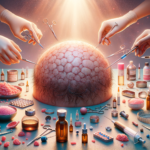Introduction to Egg Donation
Egg donation is a remarkable medical procedure that offers hope to individuals and couples struggling with infertility. It involves a donor providing her eggs to help others conceive, often through in vitro fertilization (IVF). This process not only fulfills the dreams of aspiring parents but also empowers donors to make a significant impact on someone else’s life. As more people become aware of this option, understanding the intricacies of egg donation becomes crucial.
The Egg Donor Process Explained
The egg donor process is a meticulously structured journey that involves several steps to ensure the safety and success of both donors and recipients. Initially, potential donors undergo a thorough screening process that includes medical evaluations, psychological assessments, and genetic testing. This ensures that the donor is in optimal health and suitable for the procedure.
Once selected, donors begin a cycle of hormone injections to stimulate the ovaries and produce multiple eggs. This phase requires regular monitoring through blood tests and ultrasounds to track the body’s response to the medication. Finally, the eggs are retrieved through a minor surgical procedure, typically performed under sedation. The entire process, from initial screening to egg retrieval, can take several weeks, demanding commitment and dedication from the donor.
Finding Egg Donation Centers Near You
Locating a reputable egg donation center is a critical step for potential donors. These centers are often affiliated with fertility clinics and specialize in guiding donors through the process. Prospective donors can start their search online, using keywords like “egg donation near me” to identify nearby facilities. It’s essential to research and compare different centers, considering factors such as their success rates, donor support services, and ethical practices.
Visiting multiple centers and speaking with staff can provide valuable insights into their operations and help donors feel more comfortable with their choice. Many centers also offer informational sessions or consultations where potential donors can ask questions and learn more about what to expect.
Requirements for Donating Eggs
Egg donation comes with specific requirements to ensure the well-being of both donors and recipients. Generally, donors need to be within a certain age range, often between 21 and 35 years old, as this age group typically has a higher fertility rate. Additionally, donors should have a healthy BMI, be non-smokers, and free from drug use.
Donors must also have a flexible schedule to accommodate medical appointments and procedures. Emotional readiness is equally important, as donors should be prepared for the physical and psychological demands of the process. Understanding these requirements helps potential donors assess their suitability and make informed decisions about participating in egg donation.
Steps to Become an Egg Donor
For those interested in becoming an egg donor, the journey begins with thorough research and self-reflection. Prospective donors should educate themselves about the process, potential risks, and ethical considerations. Once ready, the next step is to contact a reputable egg donation center and complete an application form.
Following this, donors undergo the aforementioned screening process. If approved, they enter the hormone treatment phase, which requires adherence to a strict medication schedule. After the egg retrieval, donors receive post-procedure care and follow-up appointments to ensure their recovery. Each step is designed to prioritize the health and safety of the donor while contributing to the life-changing opportunity of helping others create families.








